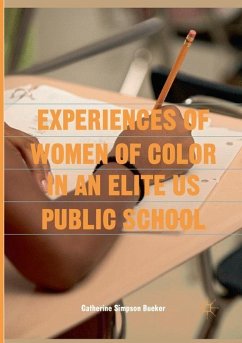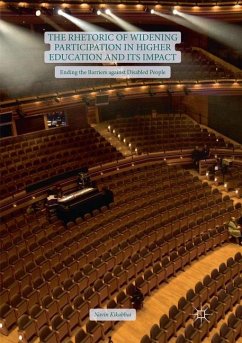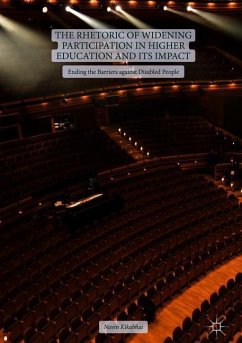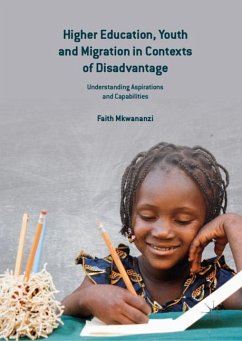
Elite Education and Internationalisation
From the Early Years to Higher Education
Herausgegeben: Maxwell, Claire; Deppe, Ulrike; Krüger, Heinz-Hermann; Helsper, Werner
Versandkostenfrei!
Versandfertig in 6-10 Tagen
106,99 €
inkl. MwSt.

PAYBACK Punkte
53 °P sammeln!
This book offers both a theoretical and empirical examination of elite education, at all stages from the early years to university level. The book explores the various manifestations of internationalisation of education; the implications of these for national education systems; the formation and re-articulation of elite forms of education locally and globally; and how these facilitate the reproduction or disruption of processes of inequality. The collection critically considers these questions by drawing on contributions from around the world, and focuses on how internationalisation processes ...
This book offers both a theoretical and empirical examination of elite education, at all stages from the early years to university level. The book explores the various manifestations of internationalisation of education; the implications of these for national education systems; the formation and re-articulation of elite forms of education locally and globally; and how these facilitate the reproduction or disruption of processes of inequality. The collection critically considers these questions by drawing on contributions from around the world, and focuses on how internationalisation processes shape the various stages of the education system - from early years settings to higher education - in oftentimes quite different ways. At the same time, by engaging with the issues through a range of theoretical lenses, the book invites readers to consider in greater depth the various ways we can come to understand how processes of internationalisation are both embedding butalso at times destabilising the formation and purpose of elite education provision and potentially the configuration of elite groups themselves. The book will be relevant to academics, researchers, students, policymakers and educators working in or on the field of 'education' across the world.














